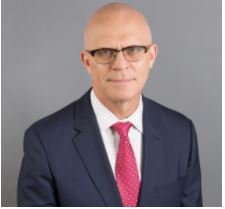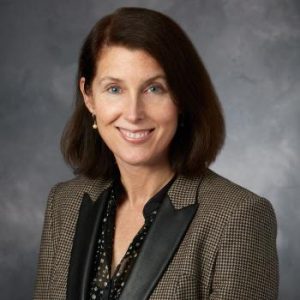Presented by: Laura Graham, PhD, Health Services Researcher, Department of Surgery, Stanford University
Talk Title: “An Updated Primer to VA Data (2024)”
Bio: Dr. Graham is a health services researcher with extensive experience in data management and analysis, particularly focusing on surgical outcomes research using large administrative datasets from the Veterans Health Administration (VA) and other single site healthcare systems. Her research interests include improving the processes of clinical care using causal inference methodologies and implementation science to translate evidence into practice. Her research has significantly contributed to understanding and improving surgical outcomes, particularly within the VA healthcare system, through rigorous epidemiological and health services research methods.
Anyone can attend and happy hour conditions apply here too.
For inquiries, please contact Ana Mezynski <mezynski@stanford.edu>


Presented by: Dr. David Spain & Dr. Arden Morris
Bio: Dr. David A. Spain is the David L. Gregg, MD Professor and Chief of Acute Care Surgery. His clinical areas of specialty are emergency and elective general surgery, trauma and critical care. His research focus is assessment of clinical care, systems of care and assessment of stress response and PTSD after trauma. He is the current President of the American Association for the Surgery of Trauma. He is a Councilor of the American Board of Surgery and Director of the Surgical Critical Care board. He is the editor of the textbook Scientific American’s Critical Care of the Surgical Patient. Dr. Spain is also the General Surgery Residency Program Director at Stanford.
Bio: Arden M. Morris, MD, MPH is Professor of Surgery and Vice-Chair for Research in the Stanford Department of Surgery. She is Director of the S-SPIRE Center, a health services research collaborative to study patient-centered care, clinical optimization, and health care economics. In her own work, Dr. Morris uses quantitative and qualitative research methods to focus on quality of and equity in cancer care. She serves as vice-chair of the Commission on Cancer’s National Accreditation Program for Rectal Cancer Quality Committee, American Society of Colon and Rectal Surgeons’ representative to the American Joint Commission on Cancer, and Chair of the ACS Cancer Surgery Standards Program Implementation and Integration Committee.
Presented by:
Yewon Ashley Son, BS, Research Data Analyst, S-SPIRE Center
&
Heather Selby, PhD, Research Scientist, S-SPIRE Center, Surgery, Stanford University
Talk Title: “Using MRI, Radiomics, and AI to Predict Rectal Cancer Response: Insights from the SHORT-FOX Phase II Clinical Trial.”
Bio: Ashley Y Son, BS is a Research Data Analyst for the Stanford-Surgery Policy Improvement Research & Education Center (S-SPIRE). Ashley received her bachelor’s degree in Statistics and Data Science at the University of California, Santa Barbara.
Bio: Heather Selby is a Basic Life Research Scientist for the Stanford-Surgery Policy Improvement Research & Education Center (S-SPIRE). Heather is interested in developing medical imaging-based AI models to identify patients with locally advanced rectal cancer who achieve a clinical complete response to neoadjuvant chemoradiotherapy, with the goal of sparing them from surgery and its associated risks.
For inquiries, please contact Ana Mezynski.
Presented by Dr. Wick.
Talk Title: “How Can We Leverage the EHR for Evidence-Based Surgical Care: Use Cases for Surgical Site Infection and Advanced Care Planning.”
Bio: Elizabeth C. Wick, M.D. is a professor of surgery with a clinical focus in colorectal surgery. Liza was Vice Chair of Quality and Safety at Johns Hopkins and is currently in the role at UCSF. Beyond clinical care, she has excelled as a mentor and researcher, promoting scholarship amongst trainees and junior faculty. She has been continuously funded by the NIH/AHRQ, most recently with an NIA-funded pragmatic trial to better understand implementation approaches to accelerate the adoption of advanced care planning in surgery. Previously, she led a national collaborative, in partnership with the Agency for Healthcare Research and Quality and the American College of Surgeons, around accelerating the dissemination of surgical pathways across four surgical areas (colorectal, gynecology, orthopedics, and emergency general surgery) over five years.
Anyone can attend and happy hour conditions apply here too.
For inquiries, please contact Ana Mezynski <mezynski@stanford.edu>
ACS CLINICAL CONGRESS PRESENTATION PRACTICE
Presented by General Surgery Residents from the Department of Surgery at Stanford University.

Each week, S-SPIRE hosts a hybrid-model Work-In-Progress session (WIP) for faculty members and trainees to present their research and receive feedback. These run from September through May each year.
Our monthly WIP sessions (first Monday of every month) features Stanford and guest faculty presentations of well-developed projects. This WIP provides an opportunity to discuss high impact research and create synergy within the Stanford HSR/Surgery communities.
Our weekly WIP sessions feature trainees and faculty projects in every phase of development—from drafting specific aims pages, to parsing grant review committee comments, to abstracts/papers/methods in preparation.
Anyone can attend and happy hour conditions apply here too.
For inquiries, please contact Ana Mezynski <mezynski@stanford.edu>



